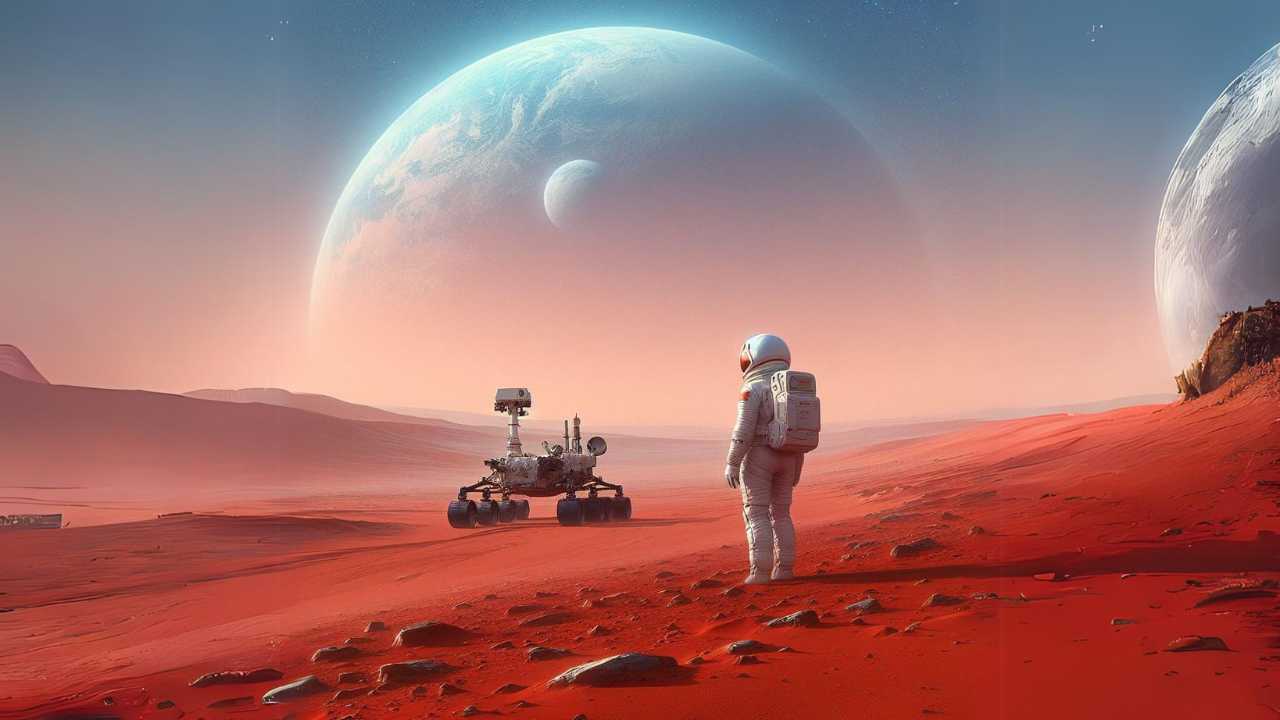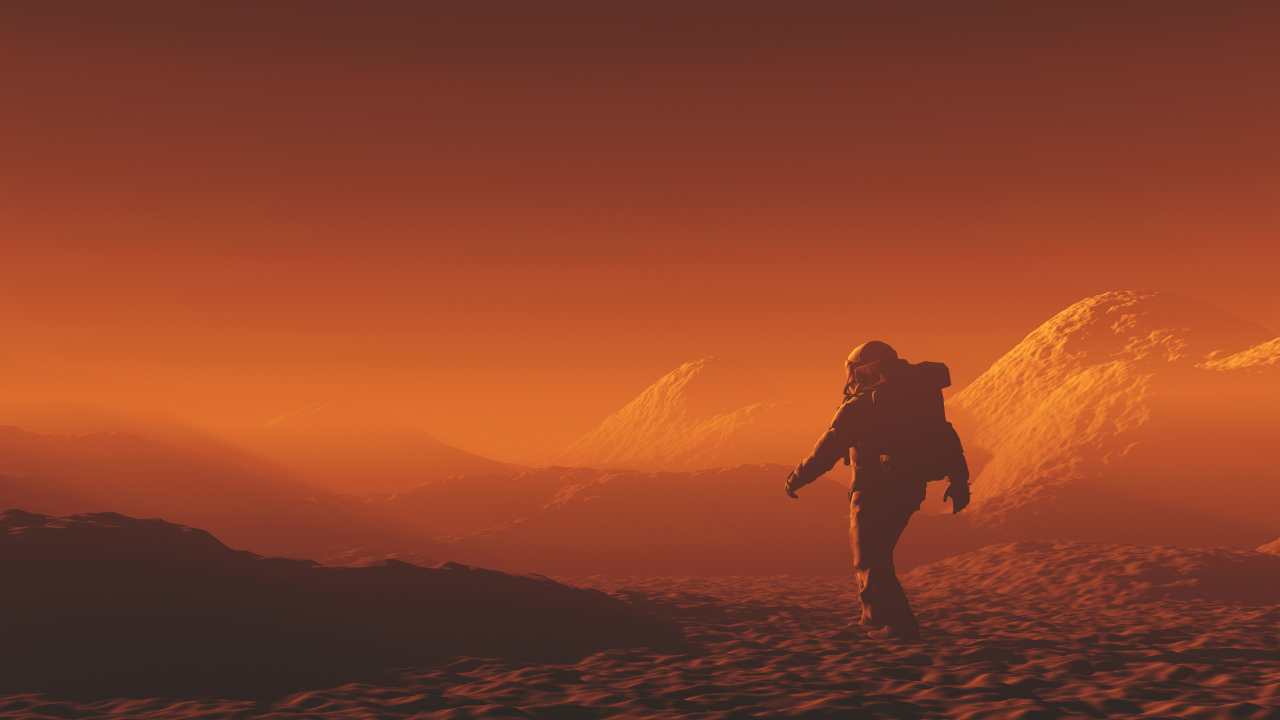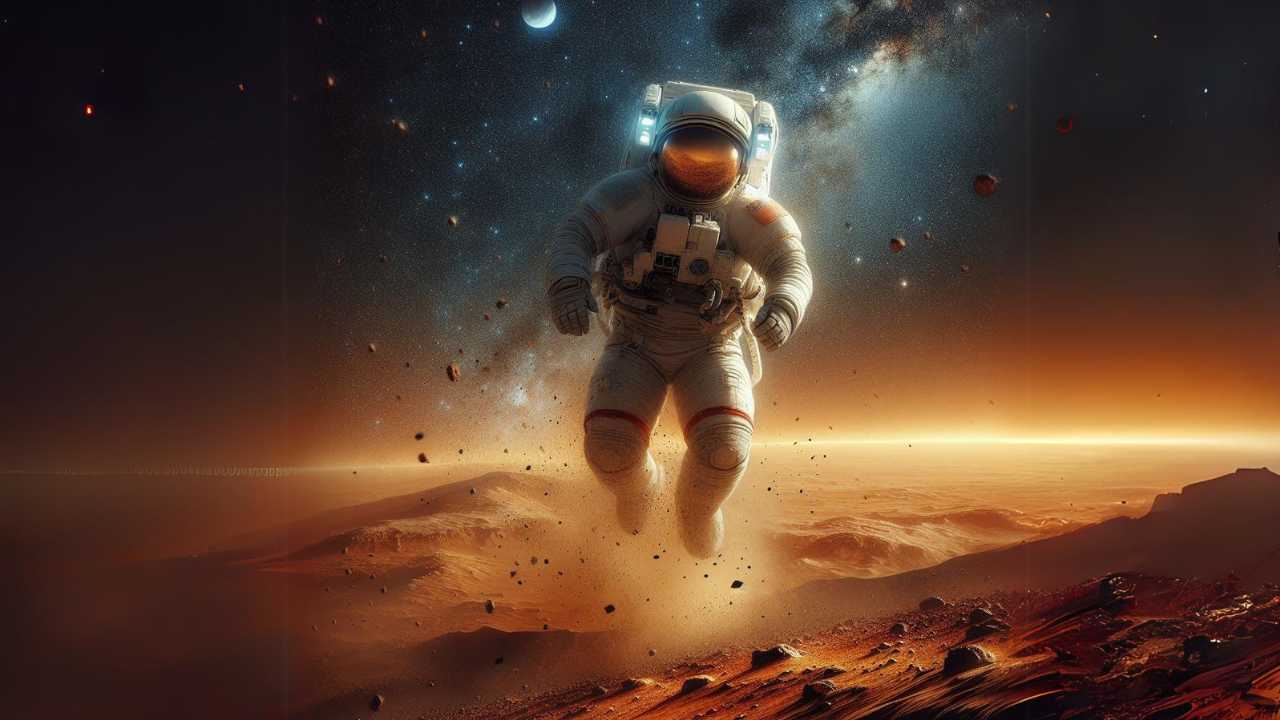Mars is the only planet after Earth that lies in the habitable zone, however, if we compare Martian gravity to Earth’s gravity, it does not have stronger gravity. On Mars, surface gravity is just about one-third or 38% out of the 100% of Earth’s gravity which can cause serious challenges for human life. Martian gravity can merely attract an object at about 3.721 m/s2 which is a relatively three times smaller number than the attraction of Earth’s gravity which is 9.8 m/s2.
Also, there is good news for the weight-conscious people out there because if you weigh 100 pounds on Earth then you should not be worried because you will just weigh 38 pounds on Mars and if you try to jump on Mars it would be 2.64 meters or 9 feet high jump in comparison to Earth where you experience only one meter or 3.3 feet high jump.
Let’s imagine for a minute, what living on Mars will look like. It will surely be a whole new experience for humans. Following are the things that we may experience on Mars if we manage to colonize it:

- Shrinking Bones: As living on Mars for about 100 years will cause the shrinking of bones due to its low gravity and breaking them will become a common issue. We surely need to make our bones and muscles stronger in order to survive on Mars because it will give us a whole new skeleton.
- Skin: Skin which is the largest organ in the human body will produce a huge amount of carotenoids instead of melanins, why? It is because the Martian atmosphere is prone to high UV rays due to the thin atmosphere and low magnetic field scattered around the planet. Since the human body needs high protection from UV rays in order to have healthy skin, carotenoids offer that protection from those high Ultraviolet radiations. Carotenoids are often consumed in vegetables and fruits such as; carrots, sweet potatoes, bell peppers, tomatoes and pumpkins etc.
- Orange Skin: Due to carotenoids our skin will become orange instead of any other colour we have on Earth.
- Near-Sight: On Mars, it will not be required to see far into the distance, therefore, on Mars people would be born or become near-sighted.

After settling down on Mars it will be hard for humans to come back to Earth. Since Mars does not have such bacteria or viruses as Earth, coming back here (on Earth) with a Martian immune system will definitely cause deadly illnesses and not just that, the strong gravity of Earth will also break down our bones.
🔬 Subscribe to SciMail
Get the latest science discoveries straight to your inbox!
Scientists are trying hard for the colonization of Mars but at the moment Mars has less quantity of human life essentials and can create serious challenges for human life. For example the atmospheric pressure of Mars is 7.5 millibars which is relatively just a fraction of that on Earth (Earth has 1013.25 millibars atmospheric pressure). Additionally, it has a surface temperature of −63℃, whereas, Earth has surface temperature of 14℃.
There is no liquid water on Mars and that is because of its low atmospheric pressure. The atmospheric pressure on Mars (7.5 millibars) is less than one percent than that of atmospheric pressure on Earth. Water on Mars exists in polar ice caps.
Mars has a thin atmosphere consisting of a high amount of carbon dioxide (95%), however, other gases have low percentages such as; nitrogen (2.59%), argon (1.94%), oxygen (0.161%), carbon monoxide (0.058%) etc. The planet is just 52% away from the sun and due to its thin atmosphere, a high amount of solar energy enters into the atmosphere in the form of radiation, hence it does not filter out ultraviolet rays.


Leave a Reply